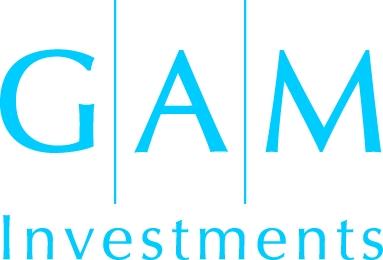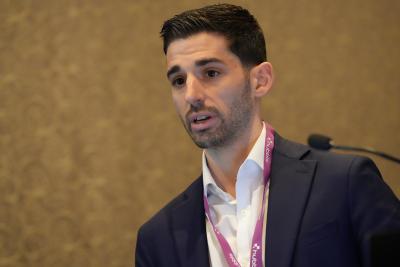Challenges in Developing a Sustainable Approach to Independent Wealth Management in the UAE’s Fast-Evolving Market

Oct 11, 2023
Hubbis hosted a private and off-the-record discussion in Dubai - supported by our partner for the event, GAM Investments - on September 21 designed to pinpoint the current state of the wealth management market in the UAE, and discuss how to focus the independent wealth management sector to seize what is undoubtedly great growth potential ahead in the region. Much needs to be done to improve standards, to encourage better practices, to expand the talent pool, to improve collaboration and to help encourage the regulators to deliver both liberalisation and enhanced, global-level practices. The experts agreed that while the growth potential is huge, and standards and the overall independent proposition are both rising, there is much work to be done to draw more clients away from the brand-name private banks, even if those banks are more transactional and, some might say, less client-centric. Looking more broadly at the UAE, the guests also noted that the UAE remains on the FATF’s grey list and the EU’s blacklist, and that to draw more reputable global money to UAE shores and to become a genuinely world-class financial hub, anomalies and ‘traditional’ practices in the region must be reined in. For example, there are stories of investors flying in with bags of cash to buy properties or luxury cars, making somewhat of a mockery of the stringent KYC and AML rules on new bank and wealth management accounts. The attendees also concurred that there needs to be a greater culture of collaboration amongst all the genuinely client-centric independent professionals already established in the UAE or opening shops to participate in the growth ahead. More strength in depth and a united front to potential clients and regulators – perhaps spearheaded by an association of independent wealth managers – would be a welcome addition.
CLICK HERE to view the photos from this event.
These are some of the topics raised during the event:
- Can Independent wealth managers offer a better client experience and advice?
- How is the independent wealth movement in the UAE progressing? Should there be an Association for independent wealth managers, like in Switzerland and Singapore?
- Why do clients work with EAMs and how are their needs and expectations evolving?
- What business models are relevant to and effective for the independent wealth market?
- What is the MFO proposition, and why do HNW and UHNW clients take up their offerings?
- How do the independents promote their proposition in comparison to the private banks?
- What must you offer to deliver a genuinely client-first advisory offering?
- Do you need an investment adviser or CIO to run a meaningful and effective boutique independent wealth management firm?
- Where do you get the best inputs when considering the advice that you give to clients?
- Who do you partner with amongst the investment platforms, digital technology providers, outsourcing operators, fiduciary experts, custodians and so forth?
- How do you build the right culture internally?
- Is the UAE a competitor with or potentially a partner for EAMs and family offices to other wealth centres such as in Europe (particularly Switzerland given its historical ties to the Middle East), Singapore and Hong Kong?
- Is there enough talent to cater to the growth potential ahead?
- How can the independent wealth industry help develop better education and training? What should the regulators be doing to encourage this?
The founder of a long-established UAE-based EAM highlights the dramatically greater diversity of the wealth management and professional services ecosystem
A well-regarded and pioneering character in the local EAM scene commented on how dramatically more comprehensive and inter-connected the wealth market has become in the UAE over the past 20 years, with growth and progress especially evident in the past 3 to 5 years.
“The fact that we are sitting here today with such a range of businesses and skillsets represented in this evolving community speaks volumes on the evolution taking place,” he commented. “We are also far more coordinated in our efforts to improve the proposition the EAM market can offer wealthy private clients and to compete even more effectively with the private banks which have historically dominated the landscape.”
The independents need to convey their skills in delivering a more holistic and more client-centric wealth management offering that leverages the wider wealth and professional services ecosystem's expertise, and that is fit for purpose in today’s complex world
The same guest observed that the siloed approach of working separately and distinctly with the banks, lawyers, trustees and others is changing, although there is much work to be done in this regard.
He said HNW advisory is so much more complex today, wealth is so geographically diverse, and there are so many more private and alternative assets now, rather than only mainstream public securities. Add to the mix the estate planning needs as so much wealth must transition to the next and younger generations, and more wealth is being created by those other generations as well.
“One entity cannot cover all these bases,” he said. “This is why I champion the collaboration and being able to bring experts together to then deliver the right solutions to the client.”
He added that information delivery is far more democratised today due to digital solutions and the 365/24 flow of news and data, all of which means that younger family members are more aware of markets, trends, concepts and peer activity. “You could see this as a sort of uncovering of the secret world of high net worth advisory, but of course the ideas and solutions still need to be delivered, freeing up those clients to keep doing what they are best at – making money.”
But can the UAE’s EAMs and MFOs yet say they are genuinely striving to offer a holistic wealth planning and advisory proposition?
A guest pointed out that tax, estate and succession planning is more of an afterthought and a sidebar to the main private banking activity in the region, whereas in the UK, for example, tax planning and structuring comes first. Of course, the tax environment in the UAE and more broadly the Middle East is very benign, but the HNW and UHNW clients are more and more global in their assets, businesses and families.
Family offices are increasing in numbers, but their scope, mandates and ambitions are not yet demonstrative of a truly professional approach to consolidated family wealth and estate management
The same attendee commented that while there has been a rapid expansion of the family office market, SFOs are not necessarily the ‘solve-all’ entities that people might think they are, unless they have the scale and the skills necessary to conduct investments, planning, structuring and a host of other missions.
Another guest added that the term family office is bandied about, but some are still what they used to be in the region, namely glorified administrative and concierge hubs for the increasingly extended families.
As family offices multiply and as their professionalism increases, the EAMs and MFOs – offering a more 360-degree and highly personalised offering - should be able to prise more of them away from the private banks
An attendee reported that he had contact with a new family office that on consolidation and codification of all their USD800 million of investment assets, they had suddenly realised that the seven private banks they worked with had allocated some 30% of the entire asset pool to structured products. These are, of course, high-fee products, but highly complex and difficult to understand.
“This is precisely why family offices are valuable,” he said. “A centralised coordinating, one view entity will be able to pick apart these types of appalling treatment that otherwise might have gone unnoticed really.”
Another guest pointed observed that as the family office space expands in the UAE, so too families are focusing on a host of issues such as business and family governance, family constitutions, more robust estate planning and structuring and so forth.
She observed that more patriarchs are also working with independent advisors and CIOs to help run their family wealth, including helping with seeding future family businesses and also seeding activities of the younger generations to get them focused on ventures and enterprises that they have a personal interest in, thereby keeping them engaged and within the family fold.
She also observed that there is more such activity targeted towards and initiated by female family members, as women’s business and financial involvement in the region’s families expands.
She added that in her experience, SFOs need scale, noting that below USD500 million or USD1 billion, the MFO route for smaller families is perfectly viable and more economically logical than establishing an SFO. She said that for those types of families, a well-organised MFO is an ideal option, and brings them into alignment and contact with peer group families with similar characteristics and objectives.
Significant family offices with scale and genuinely lofty ambitions are increasing in number, and drawing in expertise from major state investment arms and other institutions, meaning that the EAM proposition must itself aspire to institutional quality
Another guest observed that some of the leaders in the state investment, or pensions arms of major government and other entities in the region have in recent years migrated to substantial family offices, where, as CIOs, they are increasingly adopting a more institutional style approach.
“You might have a pension fund in the region with USD60 billion under management and a family office running USD2 billion, and their business models are increasingly identical,” he reported. “This is what I call ‘osmosis’ in the way the professional institutional investors are running money that has infused into the single manager, single family office space, which is now increasingly quasi-institutional or more.”
In light of this, he advised guests that to be successful in the EAM space, those firms should not aim to be one-stop shops but specialists in what they are best at. “My advice is to figure out what you do really, really well, identify your differentiated offering and offer that to the clients. We need to work together to deliver clients the best outcomes; that is what will take our industry to the next level.”
The EAM community and the overall proposition must do more to emphasise differentiation and client-centricity in order to win and retain clients, including working highly effectively with the private banks and other custodians
A relatively new arrival in the UAE’s expanding EAM community explained that his own and his firm’s mission with clients was to avoid the type of commercialised approach of the private banks (several of which he had worked in Europe) designed to commercialise a client’s assets in order to extract 1.5% or even 2% annually from the AUM.
“That mentality goes completely contrary to what we are about,” he said. “Ours is a far more personalised and value-added offering.”
He explained that his firm does business with nine of the private banks, extracting the best from each of them in order to deliver their clients what they need, but as an EAM, they are then freed up to focus on holistic planning and advisory for those clients.
“We cannot do everything, so we work with the banks and third-party specialists to deliver the full array of products, services and capabilities,” he explained. “We deal with clients from USD250,000 in AUM in our retail team and USD50 million or more in the private client segment. We work on a UK charging structure related to AUM, although we are based in the UAE.
Clients today need the very broadest array of services and optionality, extending far beyond investment management
A speaker from the investment migration industry offered his perspectives, remarking that the ecosystem of EAMs and advisors was so different today that it also includes consultancies and a variety of other specialisations, in recognition of the rising complexity and globalisation of clients in the region.
Residence and citizenship alternatives had, he noted, risen markedly in importance for wealthy individuals and families since the turmoil wrought on the world by the pandemic.
“Our business is bespoke, and advisory, not transactional,” he explained. “We provide solutions for clients that really suit them and their needs and budgets. And the intelligence we glean from our private client business helps us greatly in relaying that information to the many governments we work with on their inward investment migration programmes.”
Many or most of those governments are looking enviously at the success of Dubai’s Golden Visa programme and other programmes around the world, such as Portugal or even in the Caribbean.
High levels of demand for corporate and outsourcing services augur well for the wealth management market in the UAE, and collaboration with all the other experts is ideal for helping clients and creating win-win scenarios
A corporate services provider whose firm is relatively new to the region observed that demand for new fund vehicles, family office structures and other corporate holding entities was surprisingly robust and rising.
“Demand is strong, and we have seen a lot of demand coming in from places such as Hong Kong, with clients seeking a foothold in this market for diversification, for capital preservation, and also for an alternative jurisdiction and lifestyle,” she reported. “They have one eye on conflicts such as the Ukraine crisis, and other geopolitical troubles, knowing how well Dubai and the UAE handled the pandemic and kept a more normal life going.”
She explained that the firm collaborates with asset managers, providing corporate outsourced services to family offices and other principals, covering finance and accounting and even opening the door to fund management, all compliantly and without the need for headcount on their premises.
“I find this relatively easy to sell compared with wealth management,” she told guests. “Clients like to hear we have the innovative technology to deliver solutions and save them money and produce consolidated views of their assets and investments. They don't have the know-how to have one NAV for all their investments worldwide with different taxes and all those complexities. With investments all around the world, they really need some kind of consolidation. And this is why we work closely with wealth managers, lawyers and others so they can deliver our services to clients, and vice versa. I like partnership and collaboration, we do not compete with our partners, for example, we are not in any advisory; it is a win-win for all.”
An investment platform head agreed, noting that like their major competitors, they do not manufacture products, they deliver agnostic open architecture. “We are there as facilitators for our [EAM] partners to deliver services to their clients; we need to work closely together because they need to fight hard against the private banks with their huge marketing budgets and often global brand recognition.”
Key challenges today include the quality of advice and supposed expertise on offer, and the difficulties around monitoring advisory skills and practices, with collaboration, outsourcing and partnerships to deliver better outcomes for all parties
Another guest agreed, noting that even with the demise of Credit Suisse, the aura of the giant private banks had hardly been dented in many clients’ minds. “And one of the issues is the difficulty in getting hold of any comparison data on investment management performance,” he added.
He extended this train of thought to current activities in the very rapidly expanding UAE market. “Nobody actually regulates this industry, here or anywhere else, for good outcomes in terms of wealth management. Is it the right product that was sold at a certain point? Were clients told all the risks? Have the advisors constructed the portfolio properly? There really is no means of assessing all these issues.”
Another guest added: “One of the biggest problems I have with our industry is there are too many people out there acting as investment advisers when they are not.” He said many of them should consider outsourcing their investment advisory and management to external specialists and look to the longer-term view of offering their clients the best outcomes and retaining those clients for many years ahead.
“We offer genuine alignment with the interests of the advisors and the clients, creating bespoke portfolios and if there are areas in which we are not so expert – for example, passive strategies rather than active strategies, we work with outer partners as well.”
A fellow guest agreed, commenting that she fears private banks’ interests are too seldom aligned with the client. “They are product driven, with messages coming down from the CIO or other teams on what the RMs should be selling, but things often then change and suddenly that product is out of favour, and they are then pushing other products,” she said. “I hear from these bankers that it is often tough going back to their clients to switch horses, but this sort of cycle has gone on for years and is still dominating that landscape. And so often the clients will just stick with them because they appear to be safe custodians of their funds and they have the major brands.”
There is a genuine need for an association of independent wealth managers in the UAE, to promote that model, improve standards and work more closely with the regulators to help develop rules, standards, oversight and practices
Some of the experts agreed that there is a need for an independent wealth manager body that in its best manifestation would drive awareness of the independent community forward and also lobby the regulators for further evolution of the marketplace. But he acknowledged that such a body needs to keep its sights set high, with genuinely more visionary objectives, rather than just becoming a cost club of like-minded firms and individuals.
“We have to strive and drive towards higher standards, better self-regulation and push the regulators towards better standards and oversight, for the benefit of this industry and of course the end clients.”
Another attendee agreed and noted that the mission should also be to hold other parties to account through the regulators, including the major banks and also the smaller players such as IFAs.
They concurred that elevating standards and practices would help reduce the volume of so-called ‘dodgy’ money coming into and through the region, and also ‘dodgy’ practices. They agreed that things are moving in the right direction, but conceded that there is both grey and black listing currently, and removing that sort of stigma will help the region develop more effectively as a wealth management hub to compare with other global centres.
Mission possible: the UAE as a centre of global wealth management excellence. But it will be a struggle while grey and black lists tarnish both reputations and intent
“For me, from a UAE global financial centre context, these are vital developments in the coming year and beyond,” an expert summarised. “But there is a real danger that it will never be a centre of global excellence and repute with grey or black listings. We need to be able to draw in higher quality and more reputable global money from centres such as Singapore or Switzerland and others.”
Another attendee highlighted anomalies such as people being able to fly in and buy apartments, houses or luxury cars with bags of cash, but bona fide clients struggling to open an account and transfer funds from well-regulated jurisdictions such as the UK or Switzerland.
“There are too many anomalies here and those must be ironed out sooner not later,” he said. “There are too many unregulated sectors of the economy here, such as gold dealers, money exchanges and others. That has an impact on the wealth management industry, where regulation and oversight are improving, but much more needs to be done and in a more transparent and public way.








